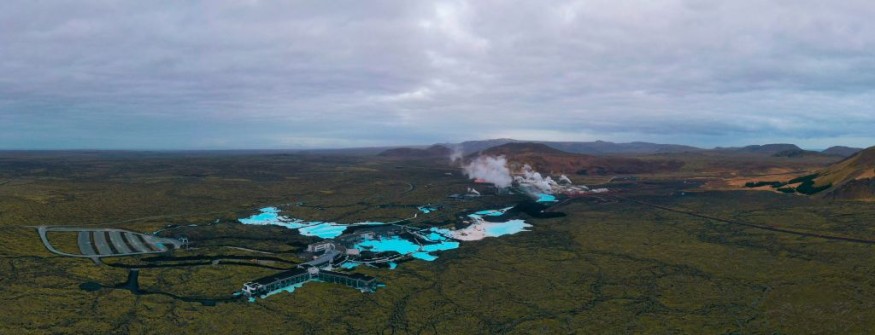
The roads leading to the Blue Lagoon, an Icelandic geothermal spa, are blocked by rocks after the area saw 1000 earthquakes in a single day.
Iceland Tourism vs 1000 Earthquakes
Iceland's famed Blue Lagoon, a top tourist spot, shut its doors for a week due to a seismic swarm of over 1000 earthquakes within the apst day on the Reykjanes peninsula, fueling fears of an impending volcanic eruption. The closure followed a powerful midnight quake and 800 subsequent tremors.
Terrified guests fled the resort, with around 40 leaving overnight, and rocks falling on the road to the hotel lobby. The Icelandic meteorological office recorded 800 earthquakes since midnight and 1,400 in the past 24 hours, predicting ongoing seismic activity but no signs of volcanic eruptions.
The civil protection department had earlier outlined an evacuation plan for Grindavík, near the Blue Lagoon, in case of volcanic eruption or a major quake. The largest event, a 4.8 magnitude quake, occurred west of Mt Þorbjörn at 12:46 am, with other significant tremors following. The situation remains closely monitored as concerns persist about potential volcanic activity in the region.
Seismic Disruption at 22,000 Earthquakes Total
Due to the disturbance faced by guests on Wednesday night and the strain on their staff, the Blue Lagoon has proactively chosen to temporarily close for a week. Representatives stated that the situation will be continuously monitored, and decisions will be reassessed based on seismic developments.
The Reykjanes peninsula has been on alert since seismic disruptions began on October 25, with approximately 22,000 earthquakes recorded in the southwest of Iceland. The civil protection agency issued an uncertainty phase warning, indicating a potential threat.
While magma accumulation persists, heightened seismic activity is anticipated on the Reykjanes peninsula due to increased tension from magma intrusion. The recent surge in seismic activity is cited as an example of the ongoing frenetic seismic patterns associated with magma accumulation, though larger earthquakes don't necessarily signify an accelerated rate of magma buildup.
Also Read : Maui Repens to Tourists by November with Some Areas Still Restricted Following Devastating Wildfire Damages
Geothermal Spa Blue Lagoon
Established in 1992 to harness the advantages of geothermal seawater, Blue Lagoon Iceland has grown into a multifaceted entity, incorporating spa experiences, research, sustainability, culinary offerings, a renowned skincare line, and the fusion of hospitality with wellness. In 2012, the iconic Blue Lagoon was recognized as one of the world's wonders by National Geographic, elevating it to a premier global travel destination.
The company's 2018 expansion introduced the Retreat at Blue Lagoon Iceland, featured in Time Magazine's list of the World's 100 Greatest Places. This complex includes a 62-room luxury hotel, an underground spa, a mineral-rich lagoon, and two restaurants, all powered by sustainable energy in alignment with the company's commitment to societal uplift.
The Blue Lagoon Research & Development Center, energized by geothermal power, serves as a thriving scientific hub where groundbreaking discoveries in biotechnology and sustainability have emerged.
Over four decades, scientists have delved into the mysteries of geothermal seawater, uncovering the beneficial properties of silica, algae, and minerals, leading to eco-friendly skincare innovations and advancements in psoriasis treatment. Exclusive patents have been secured for the distinctive chemical composition of the lagoon's silica and blue-green algae.
Related Article : Black Bear Cub Being Handled by Visitors Results in Temporary Closure of Scenic Route in NC Parkway
© 2025 NatureWorldNews.com All rights reserved. Do not reproduce without permission.





